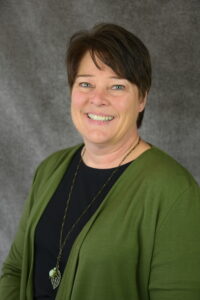By Sara Croymans, MEd, AFC
Mental health is an issue that impacts everyone in some way. In the spring of 2019, the University of Minnesota Extension formed a rural stress task force to address a wide variety of socioeconomic issues. The effort was in response to the stress on farm families and rural communities brought on by several years of low farm income. Extension’s role is to help communities respond and to help individuals and families adjust to change. To prepare, all Extension staff were encouraged to participate in a Mental Health First Aid training.
Mental Health First Aid is a national certificate curriculum from the National Council for Behavioral Health that helps participants learn to assist someone experiencing a crisis related to mental health or substance use. It teaches risk factors and warning signs for mental health and addiction concerns, strategies for how to help someone in both crisis and non-crisis situations, and where to turn for help. The eight hour training equips participants to respond to growing concerns about mental health within their constituent populations.
The training and resources are also beneficial for those working with any population, including military service members and families who face unique stressors, challenges and transitions; as well as almost everyone in our country and across the world as a result of the impact of the Coronavirus Disease 2019 on families and communities.
Mental Health First Aid is the help offered to a person developing a mental health problem or experiencing a mental health crisis. Mental Health First Aid is similar to traditional first aid – it is given to a person who is in need before professional medical treatment can be obtained. The goals are to preserve life, prevent further harm, promote recovery, and provide comfort and support.
Mental Health First Aid provides an action plan for helping someone in a mental health crisis, using the mnemonic ALGEE.
The actions, which may be used in any order based on need, include:
Action A: Assess for risk of suicide or harm.
If the person appears to be at risk of harming themselves or others, the responder should seek professional help immediately, even if the person does not want it.
Action L: Listen non-judgmentally.
As helping professionals we know this step is key. Individuals experiencing distressing emotions and thoughts benefit from an empathic listener before being offered strategies and resources.
Action G: Give reassurance and information.
After the individual experiencing the problem feels they have been heard it is easier to provide information and reassurance which includes emotional support such as empathizing with how the person feels and voicing hope.
Action E: Encourage appropriate professional help.
In addition to finding help to address the mental health challenge such as counseling or therapy, individuals may also benefit from support for family members, assistance with vocational or educational goals, and assistance with income and housing concerns.
Action E: Encourage self-help and other support strategies.
Encourage the individual to utilize self-help strategies and to seek support of family, friends, and others. Peer support can provide valuable help in the person’s recovery.
Resources:
● Learn more about the National Council for Behavioral Health’s Mental Health First Aid training at https://www.mentalhealthfirstaid.org/.
● For military mental health concerns check out Military One Source for additional information and resources.
● The Centers for Disease Control and Prevention provides resources to manage anxiety and stress related to the Coronavirus Disease 2019.
● MentalHealth.gov provides resources for Service members and their families, including the National Suicide Prevention Lifeline @ 1-800-273-TALK (8255).
● SAMHSA (Substance Abuse and mental Health Services Administration) offers:
-Taking Care of Your Behavioral Health: TIPS FOR SOCIAL DISTANCING, QUARANTINE, AND ISOLATION DURING AN INFECTIOUS DISEASE OUTBREAK – https://store.samhsa.gov/system/files/sma14-4894.pdf
-Talking With Children: TIPS FOR CAREGIVERS, PARENTS, AND TEACHERS DURING INFECTIOUS DISEASE OUTBREAKS – https://store.samhsa.gov/system/files/pep20-01-01-006_508_0.pdf
Writers Biography
 Sara Croymans, MEd, AFC, University of Minnesota Extension Educator, member of the OneOp Family Transitions team, military spouse, and mother.
Sara Croymans, MEd, AFC, University of Minnesota Extension Educator, member of the OneOp Family Transitions team, military spouse, and mother.
Photo source: Adobe Stock















